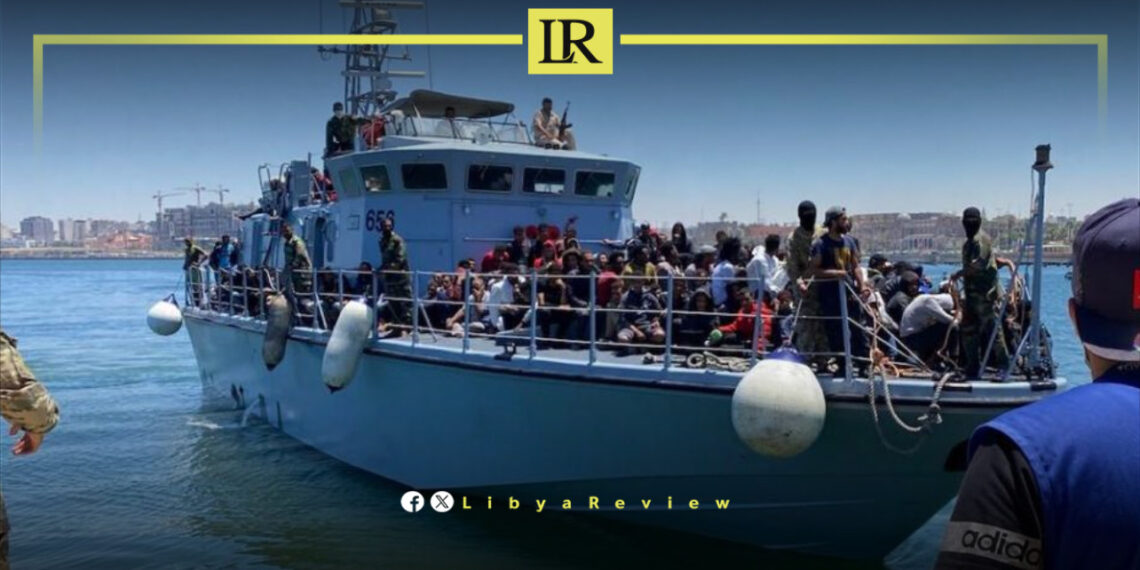Between November 10 and November 16, 2024, a total of 604 migrants were intercepted at sea and returned to Libya, as reported by the International Organization for Migration (IOM) in their latest maritime update for Libya.
On Sunday, the Libyan Stability Support Agency announced the rescue of 31 Syrian migrants off the coast near Suwai’diyah Beach in the Salloum area after their boat capsised. Among the rescued, 25 were in good health, four received critical medical care in intensive care units, and two unfortunately succumbed despite rescue efforts.
The agency reported that after receiving information about the presence of migrants at sea, Al Khoms office responded swiftly. They rescued the migrants and brought the capsised boat ashore.
The boat was subsequently destroyed by fire due to the inability to identify its owner and based on migrants’ claims that they had purchased it. This measure was taken to prevent its future use.
Legal procedures were followed, and the migrants were handed over to the relevant authorities for further processing.
Libya has been in chaos since a NATO-backed uprising toppled longtime leader Muammar Gaddafi in 2011. The county has for years been split between rival administrations.
Libya’s economy, heavily reliant on oil, has suffered due to the ongoing conflict. The instability has led to fluctuations in oil production and prices, impacting the global oil market and Libya’s economy.
The conflict has led to a significant humanitarian crisis in Libya, with thousands of people killed, and many more displaced. Migrants and refugees using Libya as a transit point to Europe have also faced dire conditions.
The planned elections for December 2021 were delayed due to disagreements over election laws and the eligibility of certain candidates. This delay has raised concerns about the feasibility of a peaceful political transition.
Despite the ceasefire, security remains a significant concern with sporadic fighting and the presence of mercenaries and foreign fighters. The unification of the military and the removal of foreign forces are crucial challenges.


